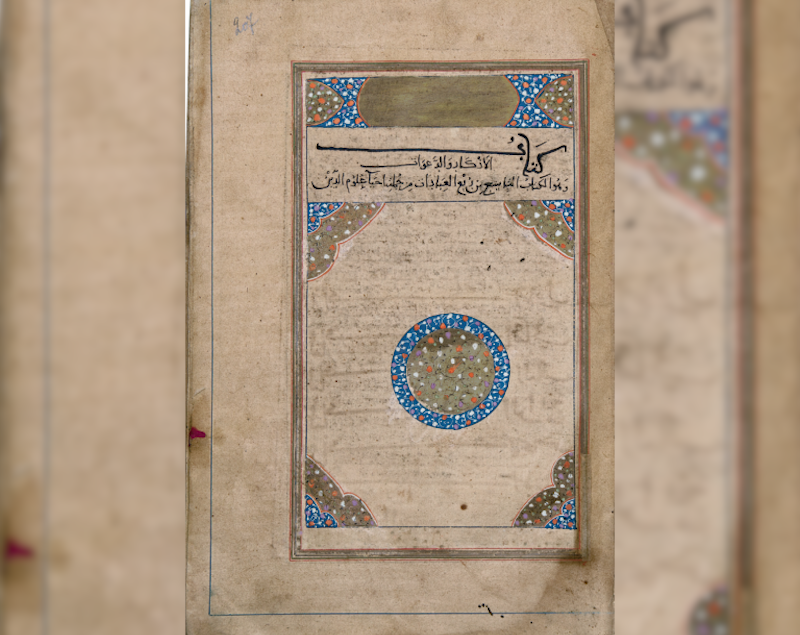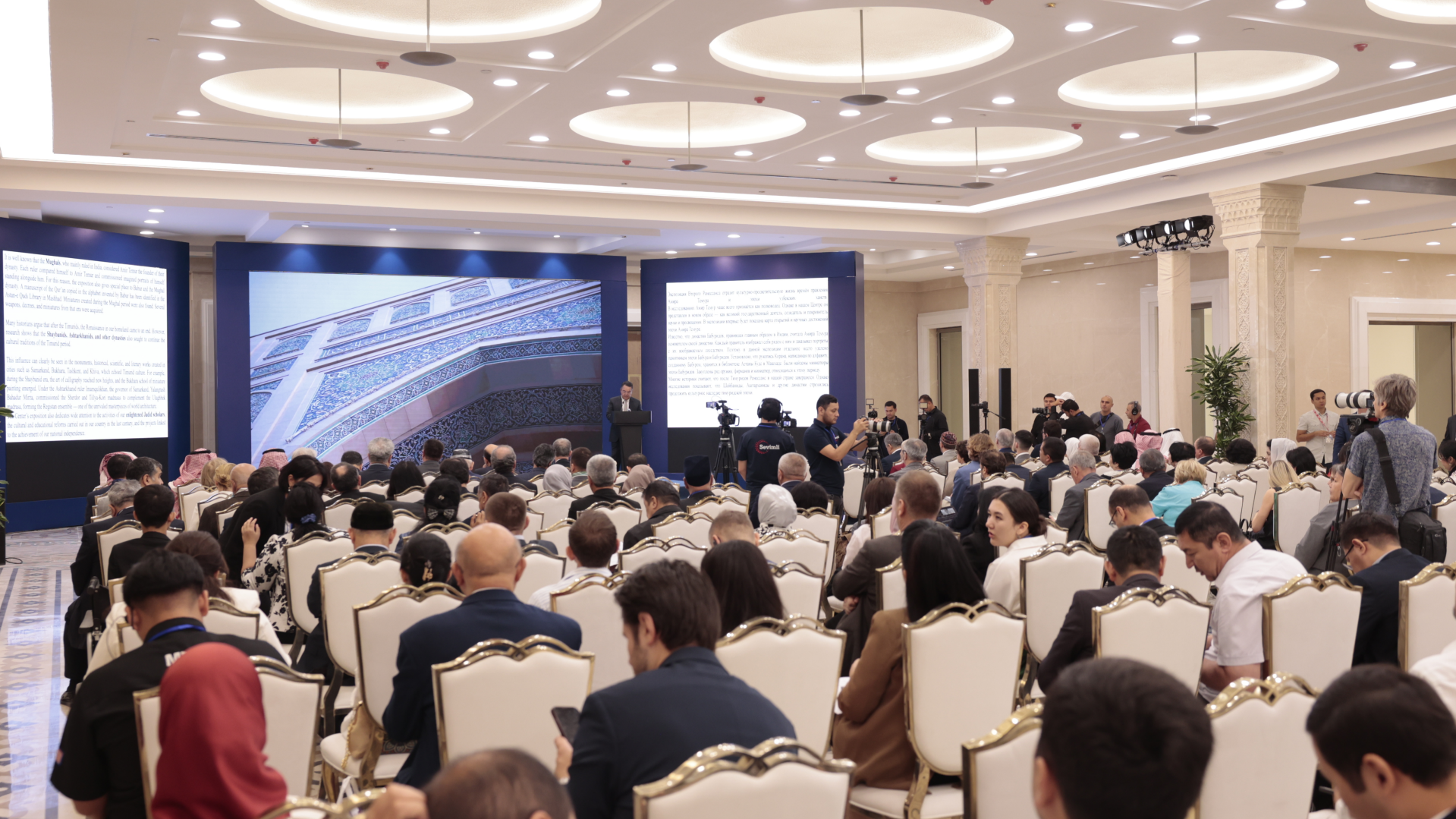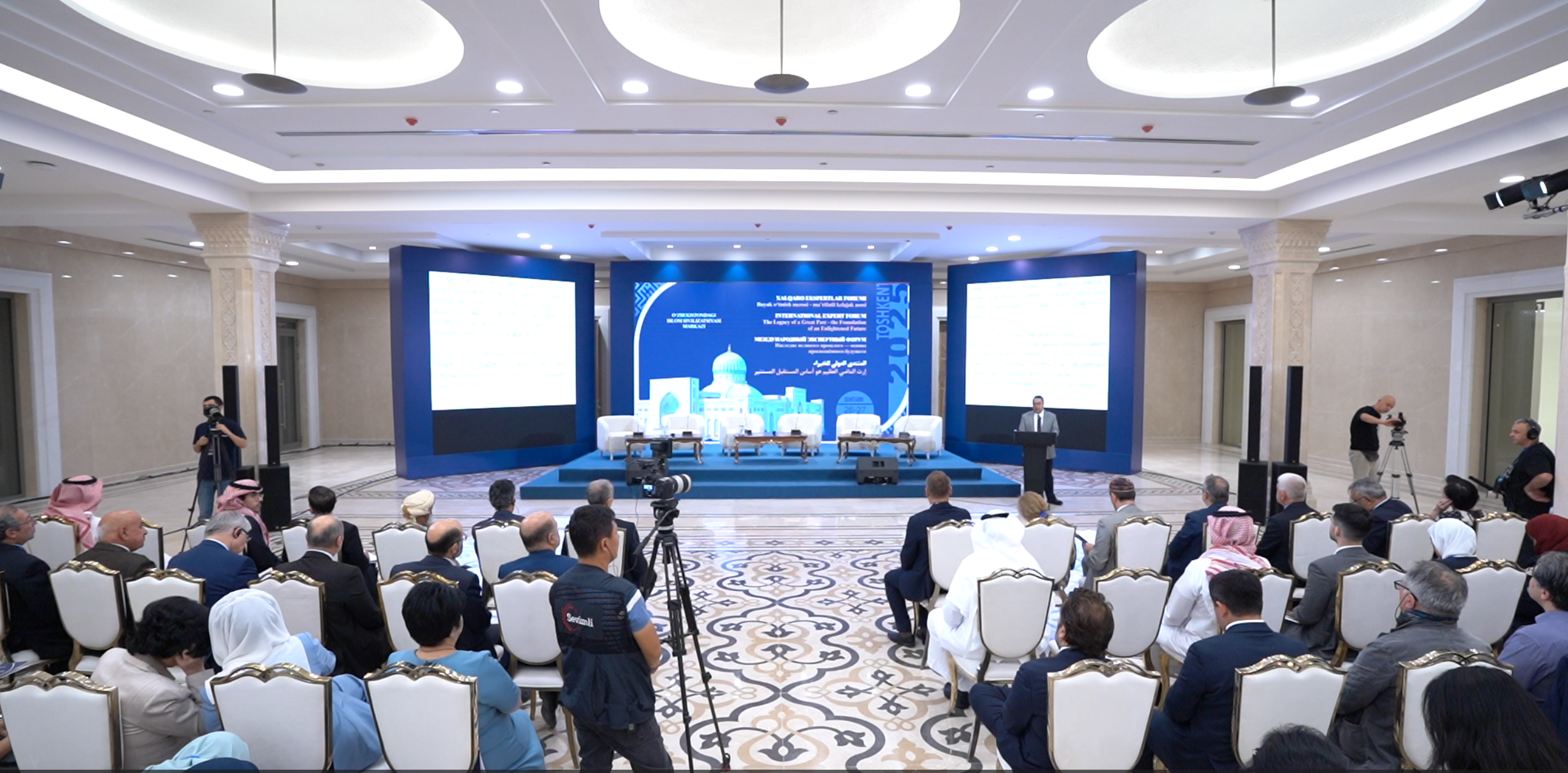The document of the Islamic religion

The history of Islamic philosophy, theology, and Sufism speaks with special reverence of Abu Hamid Muhammad ibn Muhammad al-Tusi al-Ghazali (1058–1111). His thoughts and activities particularly his work Ihya’ ‘Ulum al-Din (Revival of the Religious Sciences) have left a profound mark on Islamic spirituality and intellectual life. A manuscript copy of this work dating to the late 13th century is currently preserved at the Abu Rayhan Biruni Institute of Manuscripts (inv. no. 6108), further enhancing its scholarly and cultural significance.
The Life and Spiritual Path of al-Ghazali
Abu Hamid al-Ghazali was born in the city of Tus in Khorasan. He studied in Nishapur at the Ash‘ari theological school, served as a professor at the Nizamiyya Madrasa in Baghdad, and actively participated in the educational policies of the Seljuk vizier Nizam al-Mulk. After Nizam al-Mulk was assassinated by the Ismailis, al-Ghazali not only left the city but also distanced himself from official scholarly circles. Under the pretext of performing the Hajj pilgrimage, he departed Baghdad and traveled to Damascus and Mecca, eventually returning to his hometown of Tus, where he devoted himself to independent spiritual and scholarly pursuits.

“Ihya’ ‘Ulum al-Din” – The Harmony of Sufism and Sharia
The work Ihya’ ‘Ulum al-Din reflects al-Ghazali’s profound approach to the system of Islamic sciences. It presents Islamic law, ethics, spiritual discipline, worship, and inner purification as a holistic and integrated vision. Ghazali did not suffice with outward knowledge alone; instead, he harmonized Islamic teachings with Sufism. According to him, purifying the heart and attaining spiritual perfection must be guided by the principles of Sharia. Therefore, he advanced the idea that “Sufism without Sharia is false, and Sharia without Sufism is barren”.
The book includes supplications and remembrances (du‘as and adhkar) as practical tools of spiritual discipline. These are meant to strengthen divine love, willpower, and the sense of purity in the heart of every believer.
Ghazali also analyzed the conflict between philosophy and theology in his time. He critiqued the Aristotelian doctrines embraced by Abu Nasr al-Farabi and Ibn Sina especially their views on the eternity of the universe and the immortality of the soul in his work Tahafut al-Falasifa (The Incoherence of the Philosophers). However, he did not reject philosophy entirely; he viewed reason and logic as instruments to reinforce the foundations of Sharia. As a result, his intellectual legacy influenced not only the Islamic world but also the intellectual life of medieval Europe.
The Influence and Legacy of al-Ghazali
Al-Ghazali’s work Kimiya-yi Sa’adat (The Alchemy of Happiness) was translated into Uzbek in the 19th century in East Turkestan by Muhammad Iso. In more recent times, literary figures such as Alouddin Mansur and Rashid Zohid have shared excerpts from this work with the wider public. Even today, his writings remain among the primary sources for scholars studying Islamic knowledge and spiritual life.
Abu Hamid al-Ghazali stands as one of the foremost representatives of Islamic thought, uniting knowledge, Sufism, and philosophy in a unique synthesis. His Ihya’ ‘Ulum al-Din is not only a religious text but also an unparalleled contribution to the fields of ethics, humanity, and spiritual elevation. Ghazali’s ideas continue to play a significant role in guiding the human heart toward enlightenment and virtue.
This manuscript is also featured in the Center of Islamic Civilization in Uzbekistan’s media project, “100 Ancient Manuscripts of Uzbekistan”.
Durdona Rasulova
P.S.: The article may be used with reference to the official website of the center.
Most read

Over 100 experts from more than 20 countries of the world are in Tashkent!

The Center for Islamic Civilization – a global platform leading towards enlightenment

The museum of the Center for Islamic Civilization in Uzbekistan has been further enriched: unique artifacts from different parts of the world have been presented as gifts











